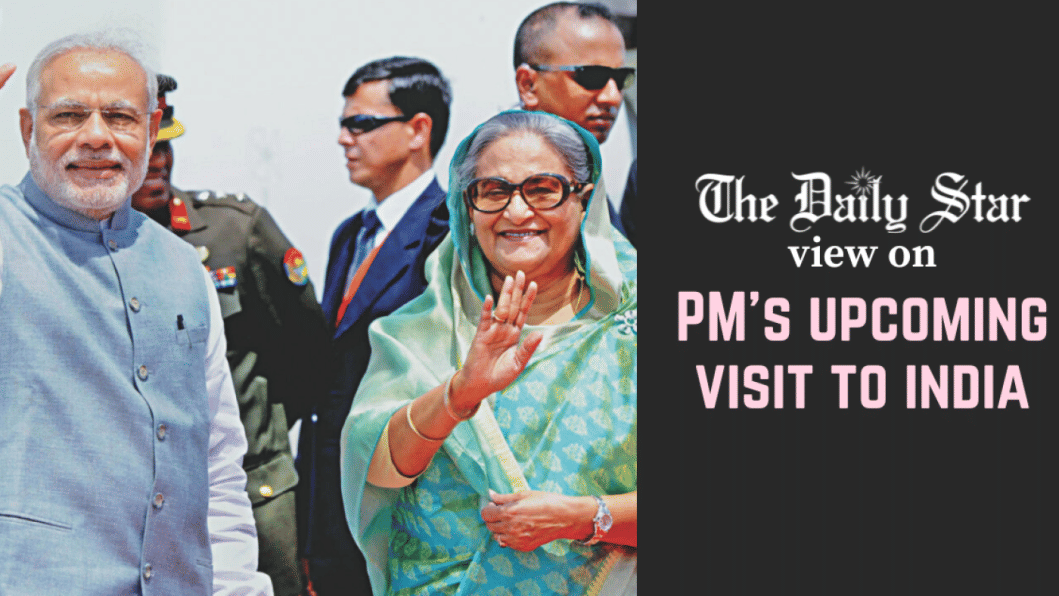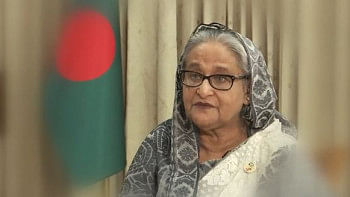What to expect from PM’s India visit?

Against the backdrop of global instability pushing up prices of fuel and commodities, and growing economic pressures at home, Prime Minister Sheikh Hasina's upcoming visit to India at the invitation of Indian Prime Minister Narendra Modi is of special significance. In recent years, diplomatic ties between the two countries have only grown stronger, especially after the resolution of major disputes over land and maritime boundaries. This time around, energy, trade, connectivity, water-sharing and security are likely to be central topics of discussion.
Given that rising energy prices in the country is having a knock-on effect on the cost of living and creating a great deal of economic insecurity, we hope the possibilities of energy cooperation will be of central importance on this four-day visit. Since India has been buying crude oil from Russia at discounted prices, can there be any possibilities of the two countries exploring an agreement on the import of fuel oil from India to ease the current energy crisis in Bangladesh?
There are a number of crucial topics of discussion in terms of trade and connectivity that will come up during the PM's trip as well, such as ensuring an unhampered supply of foodstuff like wheat, onion, pulses and spices to Bangladesh, withdrawing the anti-dumping duty imposed on exports of jute products from Bangladesh to India since 2017, and speeding up rail, road and waterway connectivity projects. Agreements on these issues will ultimately benefit both countries, since India-Bangladesh bilateral trade was worth over USD 14 billion last year, and Bangladesh is an important part of India's Look East Policy. In this regard, any potential deal must be firmly rooted in reciprocity. Given that Bangladesh's share of export to India is worth close to USD 2 billion, any deal that improves connectivity and lowers the cost of trade needs to be fully reciprocal for us to be able to reap its benefits.
It is also promising that, after a gap of 12 years, the Joint Rivers Commission meeting held on August 25 has led to progress on water-sharing issues, and the text of the MoU on Interim Water Sharing of Kushiyara river has been finalised. While we look forward to this, and other water-sharing agreements, being signed during this trip, we cannot help but note that no such progress has been made in terms of discussions on Teesta. However, despite certain issues that are yet to be dealt with, we are hopeful that the PM will have a fruitful visit and will continue to build on the close and friendly relations between the two countries, to the benefit of both.

 For all latest news, follow The Daily Star's Google News channel.
For all latest news, follow The Daily Star's Google News channel. 







Comments